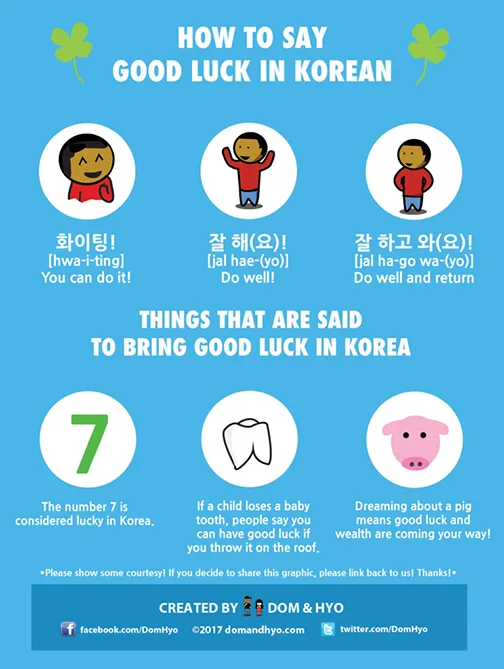
These are the common and casual ways of what roughly translates to good luck in Korean. Some Korean books explain these really well. You have probably heard “화이팅” (also sometime 파이팅/fighting) on dramas or just around your Korean friends. The other two are also very common and used among close people and friends. Like telling someone to have a good day, you want to send your friends off with a good feeling of confidence to accomplish whatever it is they need to accomplish.
잘 하고 와 is especially used when you want to tell someone good luck on a test or an exam.
You can add “요” if talking to someone older than you and you’re not quite at the point where banmal is accepted.
You can add things like oppa (오빠), sister (누나, 언니), or hyung (형) depending on who you are addressing if you are really close to them. They are not necessary but people add them sometimes. So for example:
형 잘 하고 와! (hyung jal ha-go wa)
오빠 잘 해! (o-ppa jal hae)
누나 화이팅! (nu-na hwa-i-ting)
(See our post on titles for people for more)
Also we added some things that are considered lucky in Korea. I have no idea where the pig thing or the baby tooth thing came from and neither does Hyo. I guess every place has its weird good luck charms and superstitions.
Phrases in this graphic:
화이팅! [hwa-i-ting] = You can do it (fighting!)
잘 해(요)! [jal-hae-(yo)] = Do well!
잘 하고 와(요)! [jal ha-go wa-(yo)] = Do well and return!
